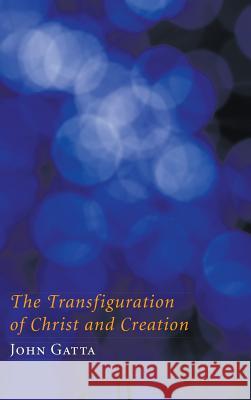The Transfiguration of Christ and Creation » książka
The Transfiguration of Christ and Creation
ISBN-13: 9781498257268 / Angielski / Twarda / 2011 / 166 str.
The Transfiguration of Christ and Creation
ISBN-13: 9781498257268 / Angielski / Twarda / 2011 / 166 str.
(netto: 154,14 VAT: 5%)
Najniższa cena z 30 dni: 159,64
ok. 16-18 dni roboczych.
Darmowa dostawa!
The biblical story of Jesus Transfiguration ""on a high mountain"" bristles with meanings germane to present-day concerns and spiritual longings. Together with its later artistic representations, this episode from the synoptic gospels seizes the imagination as an icon of mystical hope, beauty, and possibility. What might such an iconic episode, long honored liturgically in the Eastern church, disclose not only about Jesus, but also about the prospect of seeing our human nature transformed? And as interpreted by Christian tradition since the patristic era, what might it tell us about the worth of envisioning not just a conservation or preservation of natural resources but a transfiguration of all creation, and about how this ""feast of beauty"" could re-energize current discussions of Christianitys relation to environmental attitudes and policy? Such questions are addressed in this book through an original blend of personal reflection with commentary on relevant theological and scriptural texts, literary works, music, and art.""John Gatta demonstrates in a masterful way how the Transfiguration, largely ignored by modernist theologians of a secularizing mindset, is in fact an organizing principle that bridges the immanence of this world with the transcendence of that which is to come . . . Firmly rooted in the wisdom of the writers of the early church, the message of this book brings us all the way forward to strikingly modern concerns for the environment, ecology, elevated levels of consciousness, and the transformation of society. Especially noteworthy are the authors calls for enhanced liturgical commemoration of this feast as well as for its recognition as the proper Christian counterpart of Earth Day.""--J. Robert WrightSt. Marks Professor of Ecclesiastical HistoryGeneral Theological Seminary, New York City""In this wise and beautifully written book, John Gatta leads us up the mount of Transfiguration where, drawing on literature, music, science, art, and a rich Trinitarian theology, he helps us enter anew into the astonishing promise that Christs glorification holds for us and for the whole creation. It is in the transfigured Christ, he argues, that we behold most clearly our kinship with the community of life, and it is in him that we shall find the inspiration to begin the hard work of individual, corporate, and environmental transformation. This is a summons to be heeded and Gattas book is one to be treasured.""--John Orensauthor of Stewart Headlams Radical Anglicanism: The Mass, the Masses, and the Music Hall John Gatta is Professor of English and Dean of the College at Sewanee: The University of the South. His publications include Making Nature Sacred: Literature, Religion, and Environment in America from the Puritans to the Present ( 2004), together with other books and numerous articles.











